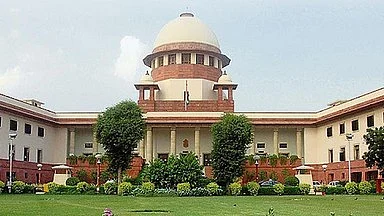SC upholds landowner’s right in Mumbai slum redevelopment case
A 2018 Bombay High Court verdict quashed Maharashtra government’s land acquisition in Kurla area for slum rehabilitation

The Supreme Court on Friday upheld a 2018 Bombay High Court verdict quashing the Maharashtra government’s land acquisition in Mumbai’s Kurla area for slum rehabilitation.
A bench comprising Justices Surya Kant and N. Kotiswar Singh concurred with the views of the high court, holding that landowners enjoyed a preferential right to redevelop their property under the Maharashtra Slum Areas (Improvement, Clearance and Redevelopment) Act, 1971.
The top court, as a result, dismissed the appeals of the Maharashtra government and its Slum Rehabilitation Authority (SRA) aside from the plea of Tarabai Nagar Co-Op Housing Society against the high court’s verdict. “The impugned judgement of the high court stands upheld,” the bench held.
The top court added, “The status quo directed vide order dated 27.01.2017 is, consequently, vacated.” The bench further allowed the land owners, Indian Cork Mills Pvt. Ltd (ICM), to submit, within a period of 120 days, a fresh SR scheme for redevelopment, keeping in mind the amendment in the applicable regulations during the pendency of the civil appeals before it.
The SRA and the state were directed to process ICM’s proposal as "expeditiously" as possible under the prescribed procedure, within a period of not more than 60 days from the date of ICM’s submission.
The dispute is related to a 9,054 sq. m parcel of land in Kurla's Tungwa village, owned by ICM. Portions of the land were declared a slum area as early as 1979, and over time, dwellers formed the Tarabai Nagar Co-operative Housing Society, which sought acquisition of the land for redevelopment under the Slum Act.
However, the high court in 2018 struck down the acquisition, ruling that ICM had the first right to redevelop the land.
“We are pained to observe that the Slum Act’s framework for rehabilitation is poorly structured,” the verdict said, underlining legislative ambiguities.
The bench nonetheless made it clear the state couldn't proceed as long as a landowner was willing to undertake redevelopment.
“Any process to acquire the land shall have to be kept in abeyance till such time as the owner’s preferential right to develop it stands extinguished,” it held, adding the acquisition was necessary only if the owner refused to redevelop or support third-party development.
The high court, on 13 June 2018, allowed the plea of the landowner and held the acquisition to be void. It directed the state and SRA to invite the landowner and consider its proposal for redevelopment.
The top court decided key questions including whether the owner of the land in an slum rehabilitation area had any preferential right to redevelop it under the Slums Act.
It also decided whether such preferential right, if any, entailed the owner to be specially notified and invited to redevelop such an area before the SRA took a legal decision.
Follow us on: Facebook, Twitter, Google News, Instagram
Join our official telegram channel (@nationalherald) and stay updated with the latest headlines
